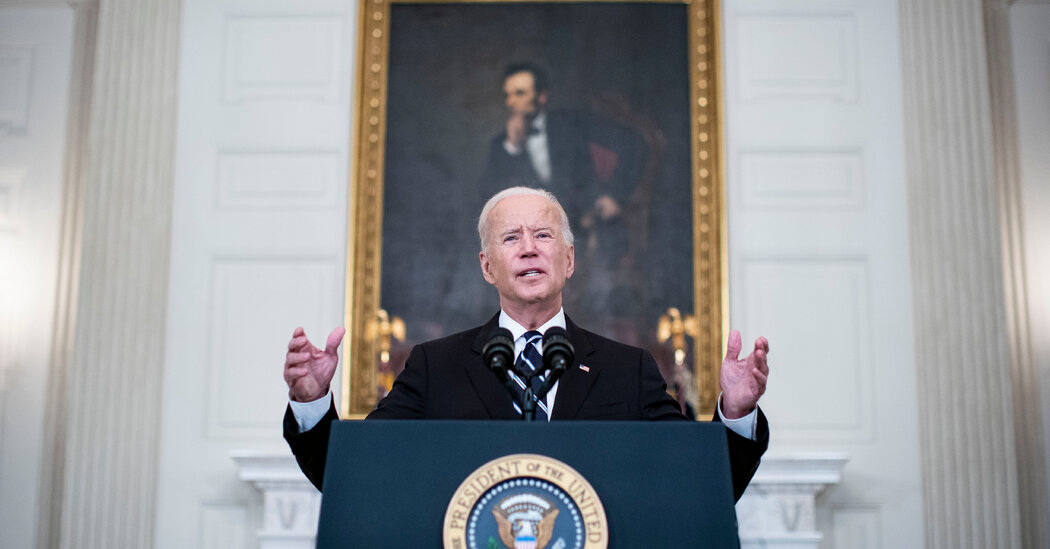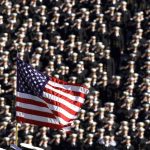
Slightly more than half of Americans, 53 percent, are fully vaccinated. The number of people seeking shots ticked up considerably in August, as Delta pushed the country’s daily average caseload over 150,000 for the first time since late January, overwhelming hospitals in hard-hit areas and killing roughly 1,500 people a day.
But the vaccination rate has yet to help the nation cross the threshold of “herd immunity” — the tipping point that occurs when widespread vaccination, coupled with natural immunity, slows the spread of a virus. If it continues to spread, officials fear that it will mutate into another, even more dangerous variant that could evade vaccines.
“When you have 75 to 80 million people who are eligible to be vaccinated, who don’t get vaccinated, you’re going to have a dynamic of continual smoldering spread of the infection,” Mr. Biden’s top medical adviser for the coronavirus pandemic, Dr. Anthony S. Fauci, warned in an interview, adding, “It’s very frustrating, because we have the wherewithal within our power to be able to actually suppress it.”
The mandate for federal workers is an especially assertive move by the president. Jen Psaki, the White House press secretary, told reporters on Thursday that aside from some religious and disability exemptions, most would be subject to a 75-day grace period for receiving a vaccine.
If workers decline to receive shots in that time frame, Ms. Psaki said, they will “go through the standard H.R. process,” which she said would include progressive disciplinary action. At least one major labor union challenged the mandate even before Mr. Biden delivered his speech.
Understand Vaccine and Mask Mandates in the U.S.
-
- Vaccine rules. On Aug. 23, the Food and Drug Administration granted full approval to Pfizer-BioNTech’s coronavirus vaccine for people 16 and up, paving the way for an increase in mandates in both the public and private sectors. Private companies have been increasingly mandating vaccines for employees. Such mandates are legally allowed and have been upheld in court challenges.
- Mask rules. The Centers for Disease Control and Prevention in July recommended that all Americans, regardless of vaccination status, wear masks in indoor public places within areas experiencing outbreaks, a reversal of the guidance it offered in May. See where the C.D.C. guidance would apply, and where states have instituted their own mask policies. The battle over masks has become contentious in some states, with some local leaders defying state bans.
- College and universities. More than 400 colleges and universities are requiring students to be vaccinated against Covid-19. Almost all are in states that voted for President Biden.
- Schools. Both California and New York City have introduced vaccine mandates for education staff. A survey released in August found that many American parents of school-age children are opposed to mandated vaccines for students, but were more supportive of mask mandates for students, teachers and staff members who do not have their shots.
- Hospitals and medical centers. Many hospitals and major health systems are requiring employees to get a Covid-19 vaccine, citing rising caseloads fueled by the Delta variant and stubbornly low vaccination rates in their communities, even within their work force.
- New York City. Proof of vaccination is required of workers and customers for indoor dining, gyms, performances and other indoor situations, although enforcement does not begin until Sept. 13. Teachers and other education workers in the city’s vast school system will need to have at least one vaccine dose by Sept. 27, without the option of weekly testing. City hospital workers must also get a vaccine or be subjected to weekly testing. Similar rules are in place for New York State employees.
- At the federal level. The Pentagon announced that it would seek to make coronavirus vaccinations mandatory for the country’s 1.3 million active-duty troops “no later” than the middle of September. President Biden announced that all civilian federal employees would have to be vaccinated against the coronavirus or submit to regular testing, social distancing, mask requirements and restrictions on most travel.
Cathie McQuiston, a deputy general counsel for the American Federation of Government Employees, a union representing some 700,000 federal workers, said in an interview that her organization would be working with agencies to “not skip over procedures and make sure employees have due process” if they are disciplined.
The federal employee mandate will apply to employees of the executive branch, including the White House and all federal agencies and members of the armed services — a work force that numbers more than four million — but not to those who work for Congress or the federal court system, according to White House officials.




